Demolishing the “Deregulation Caused the Financial Crisis” Myth
Hindsight is supposed to be 20-20, but for some people it seems like it’s blind.
We’re approaching a decade since the housing bubble burst, plunging the US economy into the worst crisis since the great depression. Still, defenders of big government and central planning continue efforts to sell the myth that the meltdown was caused by “deregulation” and insufficient government oversight of greedy Wall Street types. This includes a lot of people who should know better, including New York Times columnist Paul Krugman.
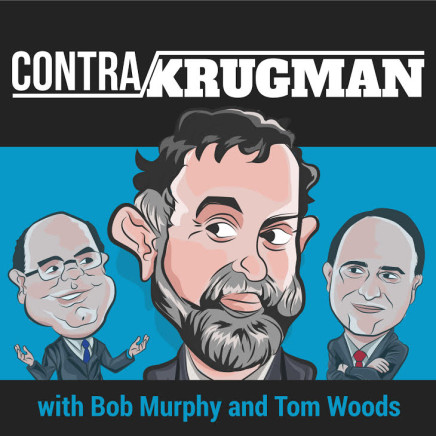
In a recent column, Krugman once again dragged out the deregulation myth, claiming “the bubble whose existence they denied really was inflated largely via opaque financial schemes that in many cases amounted to outright fraud — and it is an outrage that basically nobody ended up being punished for those sins aside from innocent bystanders, namely the millions of workers who lost their jobs and the millions of families that lost their homes.”
Tom Woods and Bob Murphy dismantle Krugman’s column in a recent episode of their podcast Contra Krugman. As they put it on their website:
Krugman called for low interest rates in 2001 precisely to stimulate housing, even calling for a housing bubble (this was ‘a joke,’ he later claimed) in 2002. Now he says the artificial stimulus to housing had to do with crooked Wall Street shenanigans, and had nothing to do with the Fed or government policy at all. We ain’t having it.”
Woods and Murphy convincingly demonstrate the real causes of the housing bubble and ensuing financial meltdown – a Federal Reserve policy of low interest rates pumping money into the economy, coupled with government policy directing this instant cash into housing.
At the heart of the crisis, we find government policies that both expanded the number of loans made and mitigated the risk of extending credit to shaky borrowers. Woods summed it up this way:
It turns out a lot of loans became non-performing loans. So, a lot of loans turned sour. These were loans, in retrospect, that shouldn’t have been made in the first place, and we can see that now, but we could not, or chose not to see that at the time. So it was the making of bad loans. That’s a traditional function of banks. It was not that banks were engaged in all kinds of new-fangled activities that so-called deregulation allowed them to do. No, it was in their traditional activities – the extension of loans – they did a really bad job.”
Murphy and Woods then detail the actual deregulation that occurred in the late 1990s, showing it had zero to do with the housing bubble or the evolution of mortgage backed investments. They go on to expose the role of Freddie and Fannie in the whole scenario, explaining how these quasi-government-private institutions took on the risk of making bad loans, leaving banks with only the upside. Finally, Woods nails the biggest factor in the whole mess:
We would place emphasis, of course, on the activity of the Federal Reserve, and then supplement that with government policy, because government policy was making housing an artificially attractive outlet for your money. So, if you have the Federal Reserve engaging in expansionary monetary policy, there’s a particular reason that it might go into the housing channel. It’s being directed there – it’s being lured there – by various levels of government policy.”
No wonder Ron Paul recently asked the question: do we even need the Fed?
All of this is important today because like Krugman, the Fed didn’t learn its lesson. The solution to the problem was essentially more of the problem – expansionary monetary policy inflating bubbles. It’s only a matter of time before the next one bursts.
You can listen to the whole Contra Krugman episode HERE.
Get Peter Schiff’s most important Gold headlines once per week – click here – for a free subscription to his exclusive weekly email updates.
Interested in learning more about physical gold and silver?
Call 1-888-GOLD-160 and speak with a Precious Metals Specialist today!



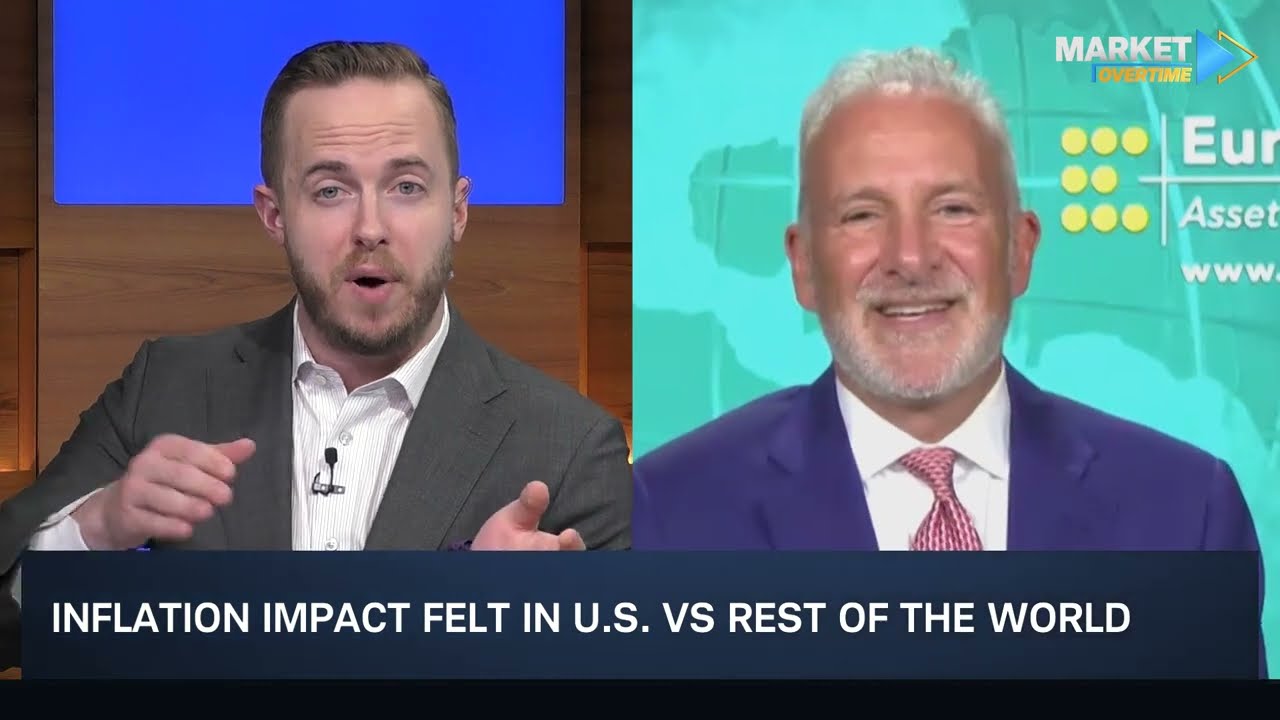 Peter recently appeared on Market Overtime with Oliver Renick for an interview. In their wide-ranging discussion, Peter speaks on monetary policy, the reliability of inflation data, and reasons to avoid Bitcoin.
Peter recently appeared on Market Overtime with Oliver Renick for an interview. In their wide-ranging discussion, Peter speaks on monetary policy, the reliability of inflation data, and reasons to avoid Bitcoin.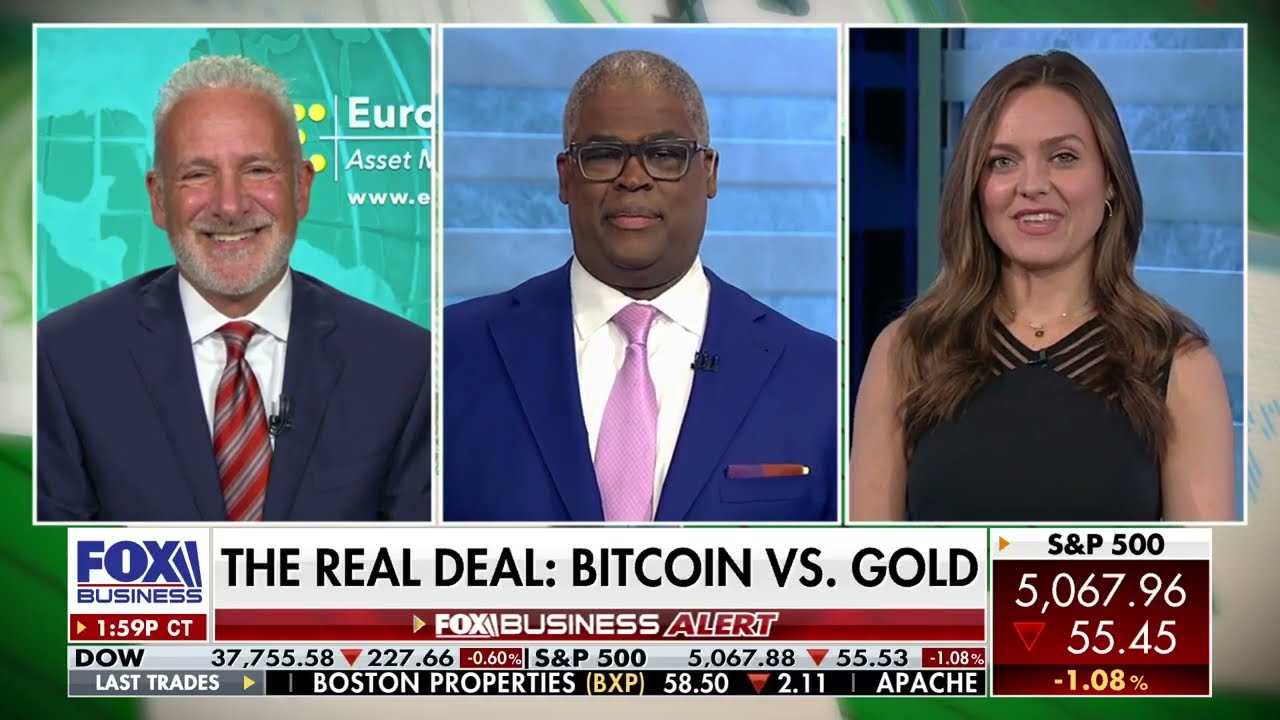 Peter recently appeared on Fox Business to discuss Bitcoin’s recent performance. In this segment, he takes on Natalie Brunell, host of the podcast Coin Stories, in a friendly debate on the merits of crypto and precious metals.
Peter recently appeared on Fox Business to discuss Bitcoin’s recent performance. In this segment, he takes on Natalie Brunell, host of the podcast Coin Stories, in a friendly debate on the merits of crypto and precious metals. Beneath the veneer of headline job gains, the American economy teeters on the brink: native employment dwindles as part-time and immigrant jobs surge. Government hiring camouflages looming recession warnings. Inflation and political blunders worsen the crisis, fueling public outrage at the establishment’s mishandling of the economy.
Beneath the veneer of headline job gains, the American economy teeters on the brink: native employment dwindles as part-time and immigrant jobs surge. Government hiring camouflages looming recession warnings. Inflation and political blunders worsen the crisis, fueling public outrage at the establishment’s mishandling of the economy.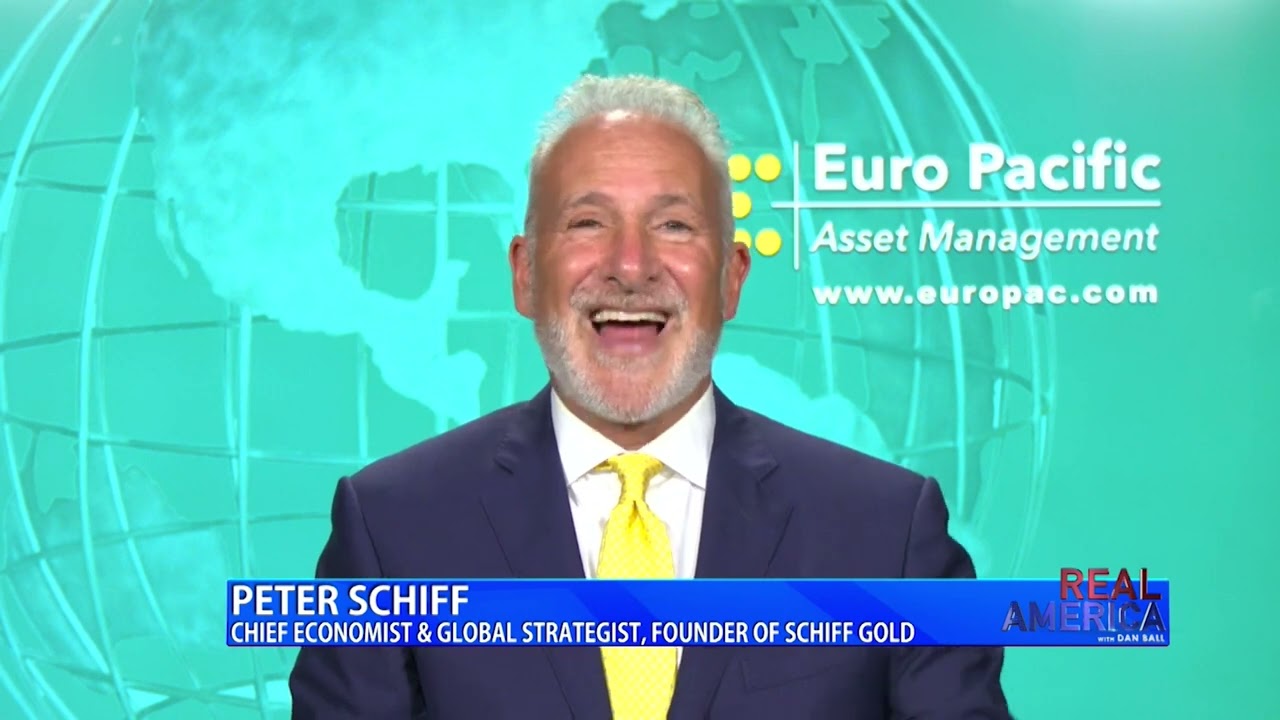 On Thursday, Peter appeared on OAN’s Real America with Dan Ball to discuss the U.S. Strategic Petroleum Reserve, the costs of home ownership, and the debt crisis. Peter argues the Biden administration won’t be able to refill the reserve, given oil’s 22% price increase this year. With the CRB exploding, Jerome Powell’s claim that inflation is coming […]
On Thursday, Peter appeared on OAN’s Real America with Dan Ball to discuss the U.S. Strategic Petroleum Reserve, the costs of home ownership, and the debt crisis. Peter argues the Biden administration won’t be able to refill the reserve, given oil’s 22% price increase this year. With the CRB exploding, Jerome Powell’s claim that inflation is coming […]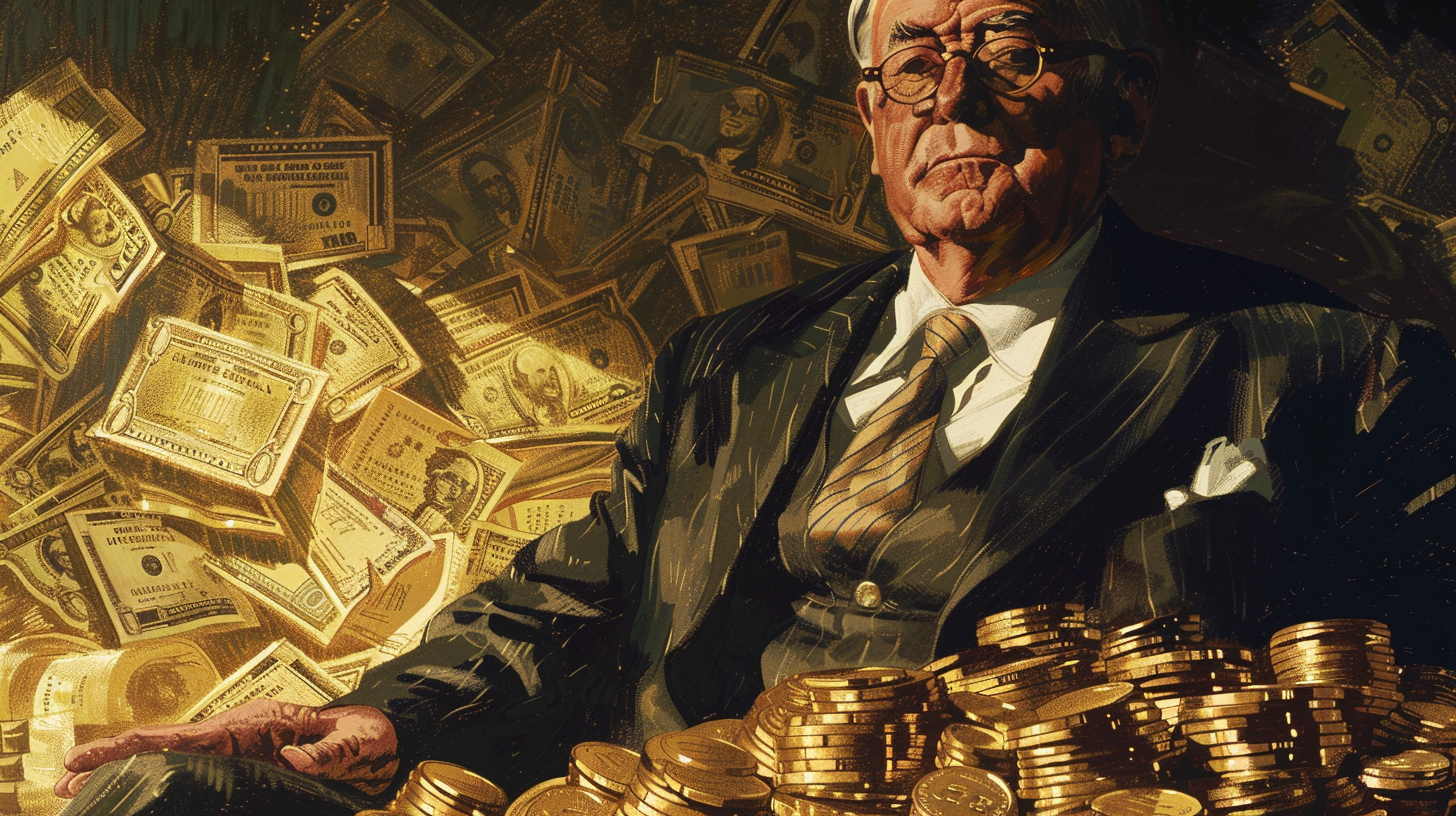 On April 5 1933, Franklin D. Roosevelt abandoned the gold standard, wielding questionable legal power amidst America’s dire economic depression. His whimsical approach to monetary policy, including coin flips and lucky numbers, unleashed unprecedented inflation and price increases that have since amounted to nearly 2500%. Our guest commentator explores this tragic history and the legacy […]
On April 5 1933, Franklin D. Roosevelt abandoned the gold standard, wielding questionable legal power amidst America’s dire economic depression. His whimsical approach to monetary policy, including coin flips and lucky numbers, unleashed unprecedented inflation and price increases that have since amounted to nearly 2500%. Our guest commentator explores this tragic history and the legacy […]
It always surprises me that moreblame for the mortgage crisis doesn’t land on Moody’s and S&P do lying about the quality of the packaged mortgage securities. Saying something is AAA to please the banks when it is full to the brim with BBB nonperforming mortgages should have sent people to jail,but everyone ignores that problem. Are they being honest this time, or crooks again??
It may well be just me, but there have been many occasions when Paul Krugman was interviewed on television that the look on his face was that of a confirmed stoner. His suspicious stare and body language literally screamed “I’m a paranoiac!” He has looked somewhat calmer in recent appearances, but the ones he made in the past convinced me that Mister Krugman likes his marijuana. He has done nothing since that leads me to believe that he is not still fond of his dope–mostly because he is exactly that–a dope.
Krugman is just another government shill, used to make people believe what is being feed to them. The whole system is based on debt, debt that can never be paid back. The Fed dictates policy, they have pumped trillion s of dollars into the banking system only to prop themselves up and five big banks. People say where is the inflation, inflation is in asset classes, stock market, real estate, and con sumer prices. Ever since QE started to dwindle a year and a half ago, we have seen the demise of the stock market here and around the world, makes sense right? Give me trillions of dollars for 0%, and I can buy treasuries that yield 3%, and keep that money recycling in the banking system over and over again, good deal right? The whole system is built on sand. 2008 was just the beginning unfortunately
Check the numbers available on Shadowstats.com and you will see that if the Federalis were not cooking the books, they would be reporting an inflation rate of about 8%. That is down from 10% a few months ago, largely because the costs of fuel have fallen.
Does Paul Krugman still believe that these government institutions of idiocy have absolutely no human parts whatsoever? Does he believe these institutions can make the right decision that will outsmart the markets just because they are government institutions?
When I was in high school, government jobs were the ones that were sought out by those unable to qualify for a job in the private sector (the real economy); in other words, they wanted jobs that were unproductive and where they didn’t have to qualify and be retained based upon merit. Since then, those people have stayed around long enough whereby they can do enough damage just by making decisions they are not professionally qualified to make. And now we are reaping the rewards of being governed by fools.
The way Krugman backtracks from his original thoughts about funneling all that funny money into housing is typical of someone who never will admit that their thoughts were bad ideas that they could have bought from the village idiot. But there is one other idea that Krugman should be forced to explain: If his ideas are so good, then why did Enron ever go bankrupt?
Having worked inside a real estate closings office during the run-up to the bubble burst, I saw first-hand the wide-spread stupidity that reigned in the housing finance world. People re-financed two and three times using low to negative loan to value mortgages, low to zero down-payments, and boosted by fraudulent inflated property value reports. They pulled the pseudo-equity out only to blow it on frivolous narcissistic goals. Cars, furniture, vacations, etc. that they couldn’t have otherwise afforded. I predicted where it would end, and it didn’t take a degree in rocket-science, economics, or an MBA (all of which I had) to see it coming — just a bit of uncommon “common sense.” Government was both the enabler and driver of that insanity: the Fed, Congress, and the Executive branch all played their roles. Fannie, Freddy and the bond-rating entities could and should have limited the damage before it became a serious crisis, but they just played dumb and raked in their millions in salaries and bonuses…
The Fed should also be held responsible for results of their 17th interest rate hike in June of 2006. Those who bought real estate with adjustable rate mortgages, and who could barely afford those rates, were squeezed into default when the rates rose. House values began declining after rates rose also, eventually resulting in homeowners being stuck with higher mortgages than their homes were worth. Thanks to HUD and government bureaucrats who saw racism rather than credit worthiness, many low income people, who should never have been given mortgages, got burned instead of helped. Typical government meddling outcome.
Krugman has the proverbial Leftist axe to grind which mimics the horse before the cart argument (“I will blame the Right no matta the data”). I’d say his tactics are deceptive and transparent, but he did win the 2008 Nobel Prize for Economics so someone is buying his snake oil.
Obummer won the Noble “prize” also for doing nothing. That should tell it’s real worth.